The days are getting lighter and longer — here's how an early evening stroll can help you get more deep sleep
Getting the extra sunlight will help you fall asleep faster and for longer
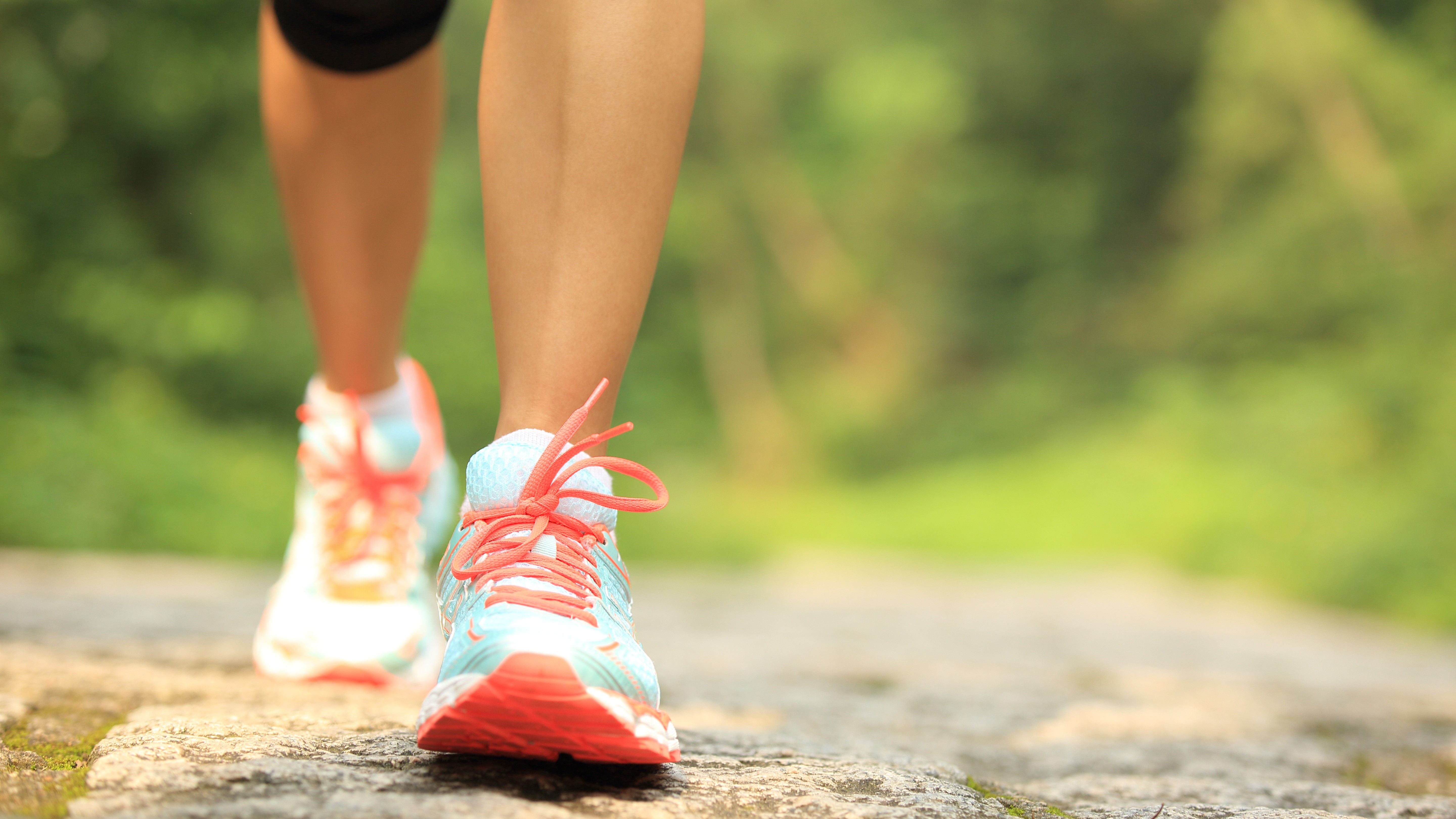
Basking in the spring and summer weather is great when you have time to step outside. But beyond weekends, most of us are busy juggling work and family responsibilities from 9-5, meaning that all important exposure to natural light can get pushed to the wayside.
But thanks to longer daylight hours, an early evening walk can ensure you get the same sleep-improving benefits from exercise and sunlight.
Partly because walking is good for our sleep. One study where participants' took part in a four week walking intervention showed that when they were more active than usual, they reported better sleep duration and quality.
There's also evidence that evening exercise can actually improve sleep because exposure to light later in the day can have a positive impact on our circadian rhythms too. Plus, more sunlight increases our exposure to vitamin D, which is essential for good sleep.
Healthy sleep means more deep sleep, and that's one of the most restorative sleep stages. Here, we're exploring all of the above, and more, to better understand exactly how an early evening stroll can help you get more sleep.
Does more sunlight in spring and summer mean better sleep?
Spring and summer mean longer days and more sunlight, which is good news for our sleep. Research has shown that natural, outdoor light improves sleep quality.
Exposure to natural sunlight is essential for healthy circadian rhythms (our internal body clock) because it helps to regulate our sleep-wake cycle.
Get instant access to breaking news, the hottest reviews, great deals and helpful tips.
In simple terms, getting a dose of natural sunlight in the morning helps to produce hormones like cortisol and serotonin to keep us awake and boost our mood during the day, and leads to us producing melatonin (the 'sleepy' hormone) at the right time in the evenings for a good night's sleep.
Seeing the sun first thing in the morning and later towards the evening really helps your circadian rhythm to stay on track
But did you know that this works in the evening too? According to Huberman Lab, a podcast and newsletter from neuroscientist and sleep science expert, Dr. Andrew Huberman, getting afternoon and early evening light can help our body clock by communicating to the brain that it's later in the day, and time to "begin the process of transitioning to sleep that night."
"Seeing the sun first thing in the morning and later towards the evening really helps your circadian rhythm to stay on track," Dr Chelsea Perry, founder of Sleep Solutions, also previously told us.
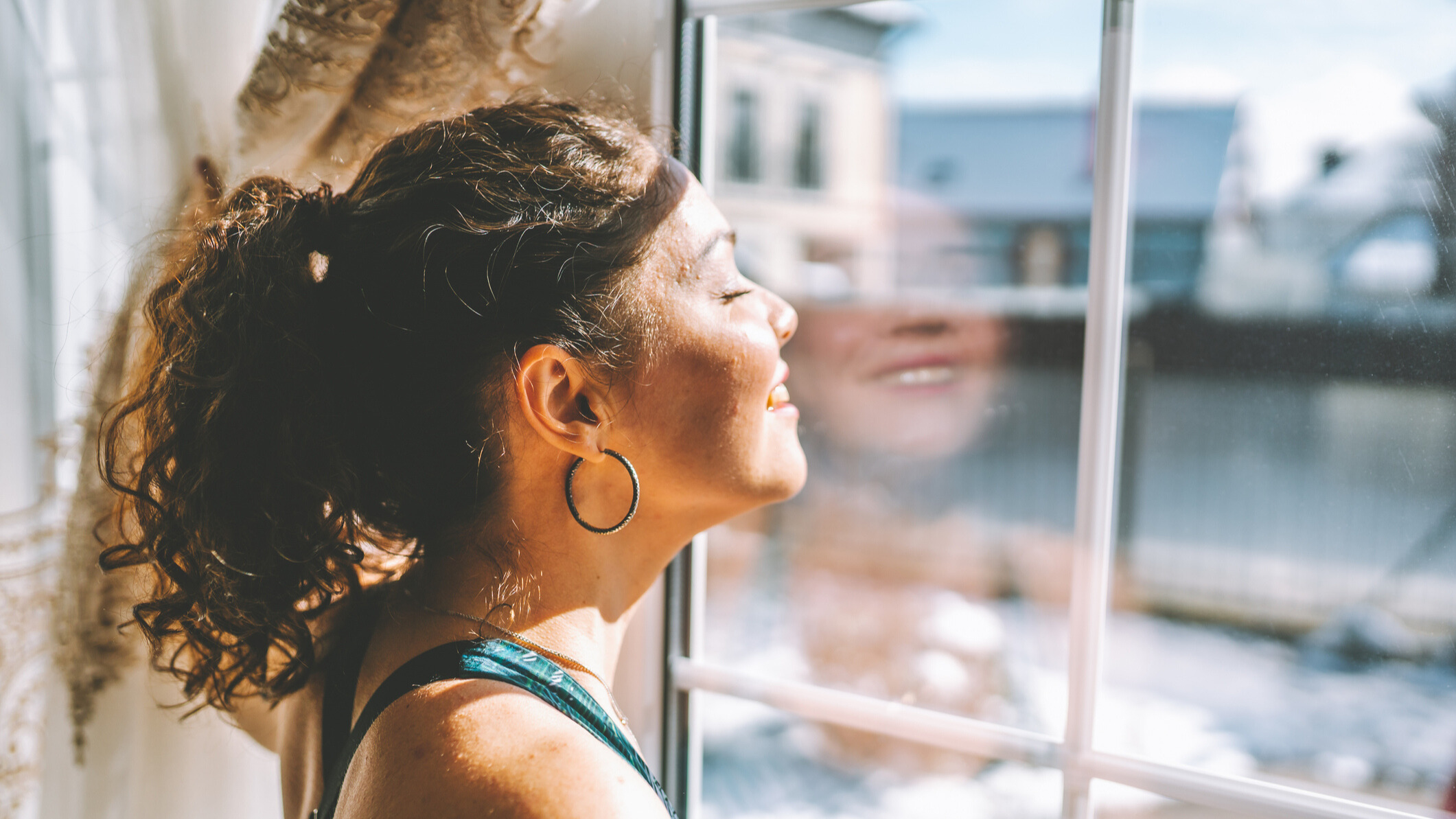
Though it is worth noting that exposure to light too late in the evening can delay the onset of melatonin production, so a pre-dinner stroll might be your best bet.
Absorbing sunlight through our skin is also how we produce vitamin D. Research has shown that this vitamin is involved in the production of melatonin and that vitamin D receptors and enzymes play a part in sleep regulation.
Since there's naturally more sunlight during spring and summer, it's likely you'll see an increase in vitamin D production during those months, which may see you sleeping better.
All of this helps you achieve more deep sleep, the most restorative stage of sleep, when our bodies are able to repair, grow and during which we replenish our energy levels. Who knew a little extra light could potentially do so much?
How an early evening walk can improve your sleep
1. Reduces stress
Exercise boosts endorphins and serotonin but that doesn't mean you have to run 10km or hit the gym for hours on end.
Walking, according to the Loma Linda University, has the same endorphin producing effect, and if done consistently, can help to decrease cortisol levels, and therefore, reduced stress.
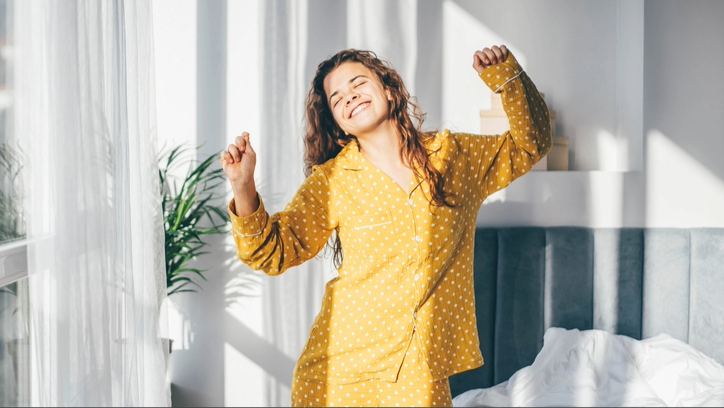
And if you can find somewhere green to take your stroll, all the better. A review of studies showed that walking in nature can "effectively improve mental health, positively impacting depression and anxiety."
An additional bonus is that when your wellbeing gets a boost, your sleep is likely to as well.
According to the American Psychological Association, adults "with lower reported stress levels report sleeping more hours a night" than adults who said they had higher levels of stress.
More hours of sleep equal more full sleep cycles, resulting in more deep sleep.
2. Helps you fall asleep faster
Exercise in general has a positive effect on sleep — according to John Hopkins Medicine studies have indicated it helps us fall asleep faster and improves the quality of our rest.
But if you're still on the fence about squeezing in a walk after work, you might be interested to learn that, though experts generally advise against vigorous physical activity at night, a studies have shown that as long as the exercise wasn't too intense and within an hour of bedtime, it increased the onset of REM and Deep Sleep.
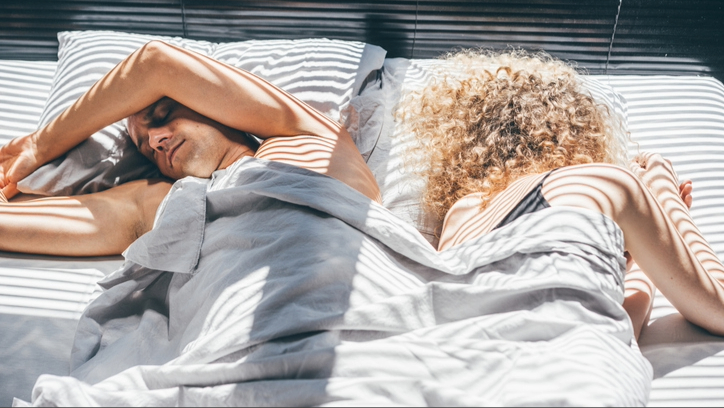
3. Can help regulate your circadian rhythm
As we mentioned, exposure to sunlight is important for regulating our circadian rhythm.
This internal body clock keeps you awake during the daytime and ensures the hormone melatonin, which helps us to fall asleep and stay asleep, is produced at the right time at night.
And while the best way to ensure your body clock is regulated is to bask in sunlight in the morning, the Huberman Lab notes that if you miss out on your morning dose of sunlight, exposing yourself to natural light later in the day "serves as a second 'anchor point' for your brain and body to know the time/season, in order to maintain the consistency of your circadian clock."
Plus, one UK study found that the more time participants spent in daylight correlated with lower insomnia symptoms, greater ease in getting up in the morning and less tiredness during the day.
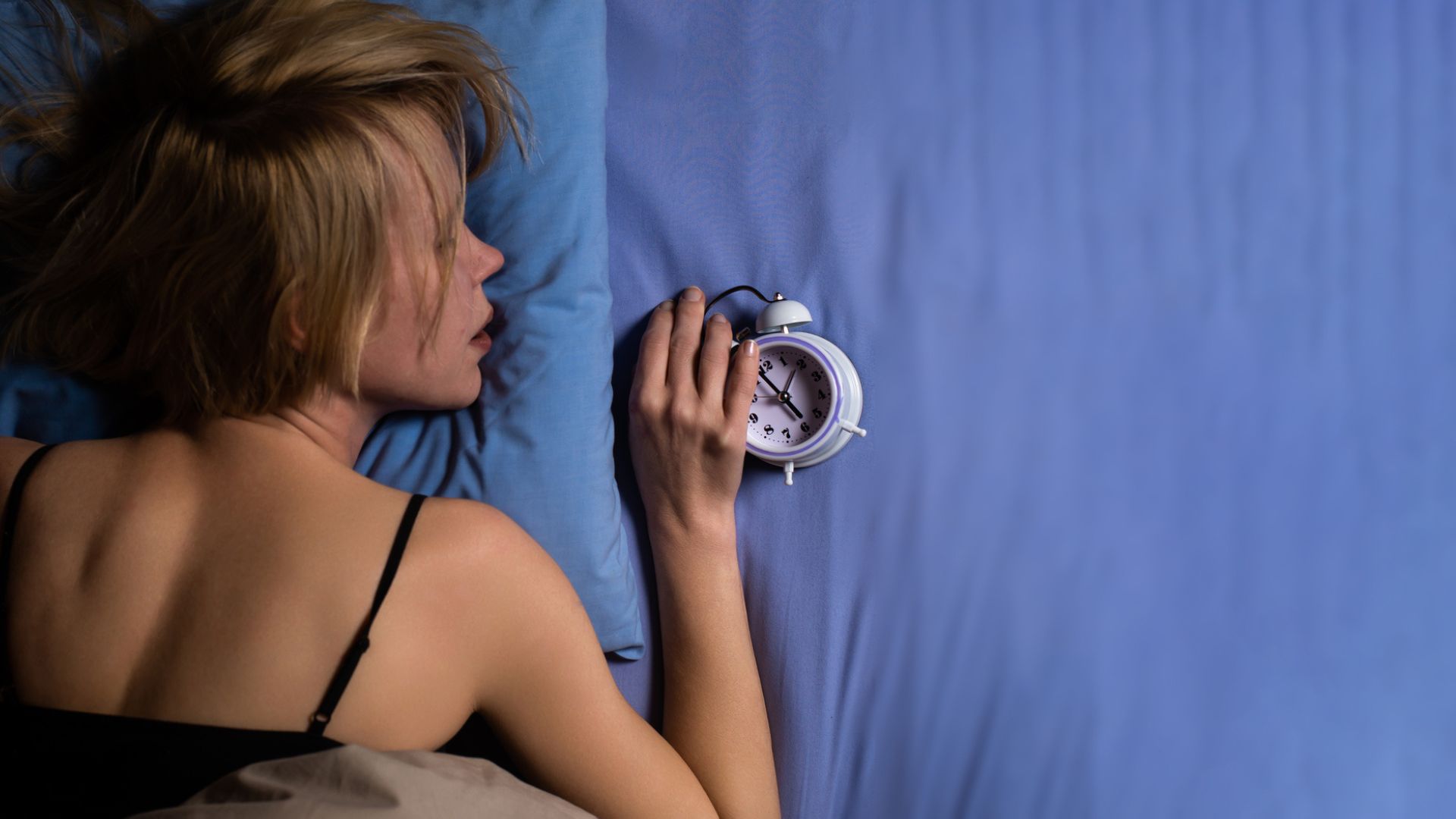
4. Improves overall health
Research has shown that people everywhere in the world are generally more active in the spring and summer, and there's good reason to jump on that bandwagon.
20 minutes of walking can help to reduce the risk of developing of sleep apnea by 10%
The Center for Disease Control and Prevention (CDC) details the many health benefits of physical activity, including helping to maintain a healthy weight, reducing the risk of cardiovascular disease and type 2 diabetes, and strengthening our muscles and bones.
Ensuring you stay at a healthy weight can also improve your sleep, since research has indicated that "excess weight is the strongest factor in the risk and severity of obstructive sleep apnea."
This is a sleep disorder where the airways become blocked during the night, causing symptoms like snoring and waking up frequently which can prevent you from experiencing deep sleep.
Need more motivation to add that after-work walk to your schedule? A recent study has shown that even 20 minutes of walking can help to reduce the risk of developing of sleep apnea by 10%.
Jenny Haward is a U.K. based freelance journalist and editor with more than 15 years of experience in digital and print media. Her work has appeared in PEOPLE, Newsweek, Huffpost, Stylist, ELLE, The Sydney Morning Herald and more. Jenny specializes in health, wellness and lifestyle, taking a particular interest in sleep.
You must confirm your public display name before commenting
Please logout and then login again, you will then be prompted to enter your display name.
